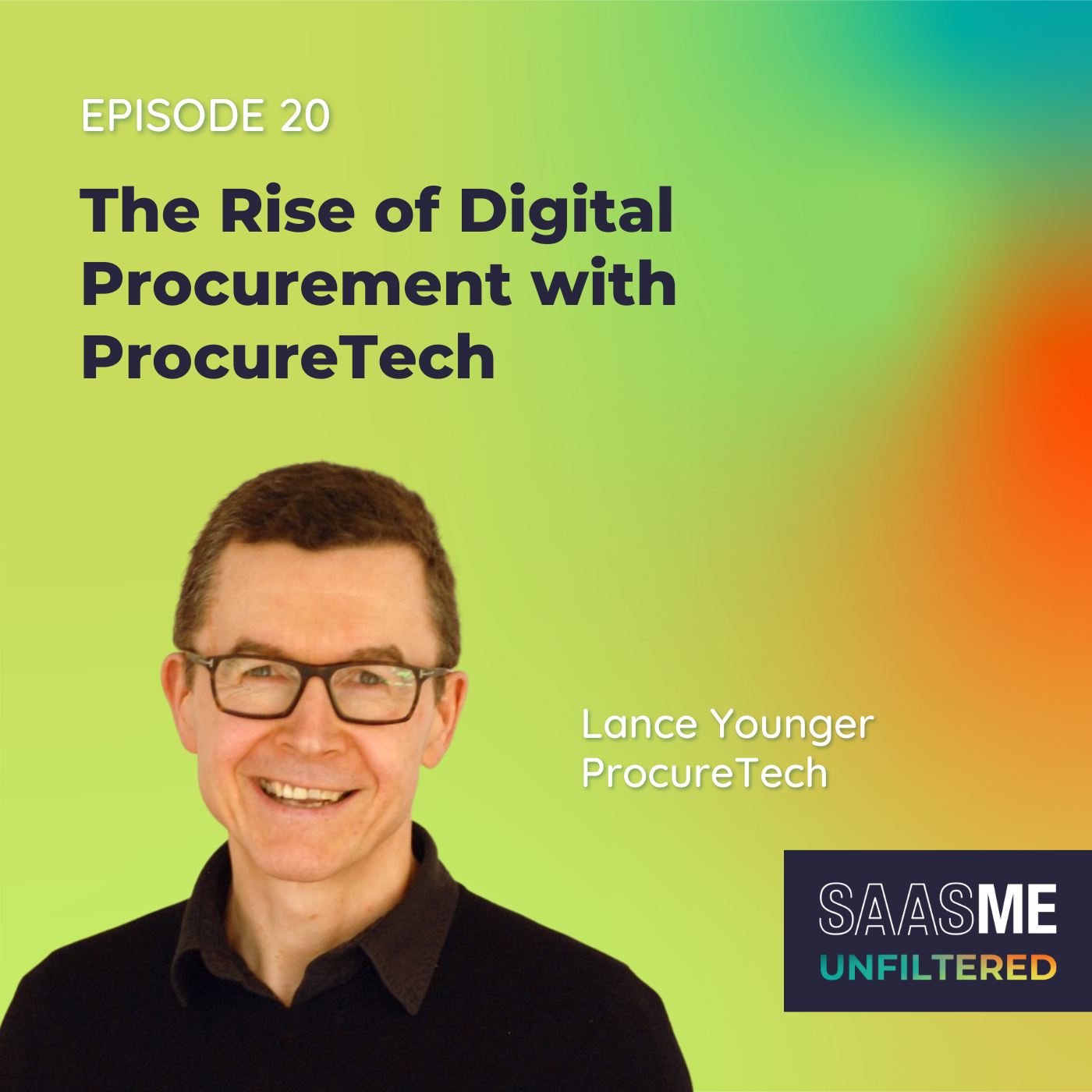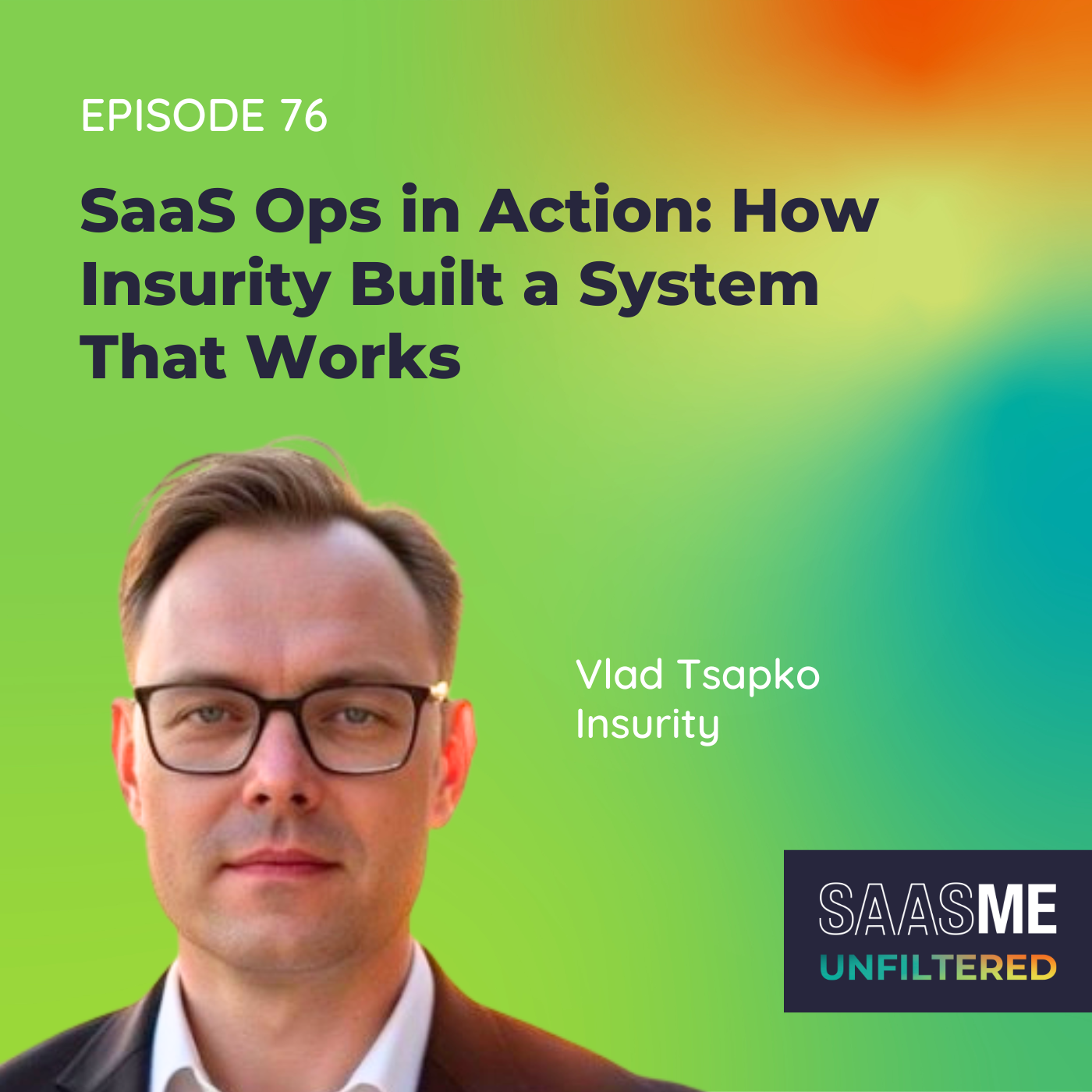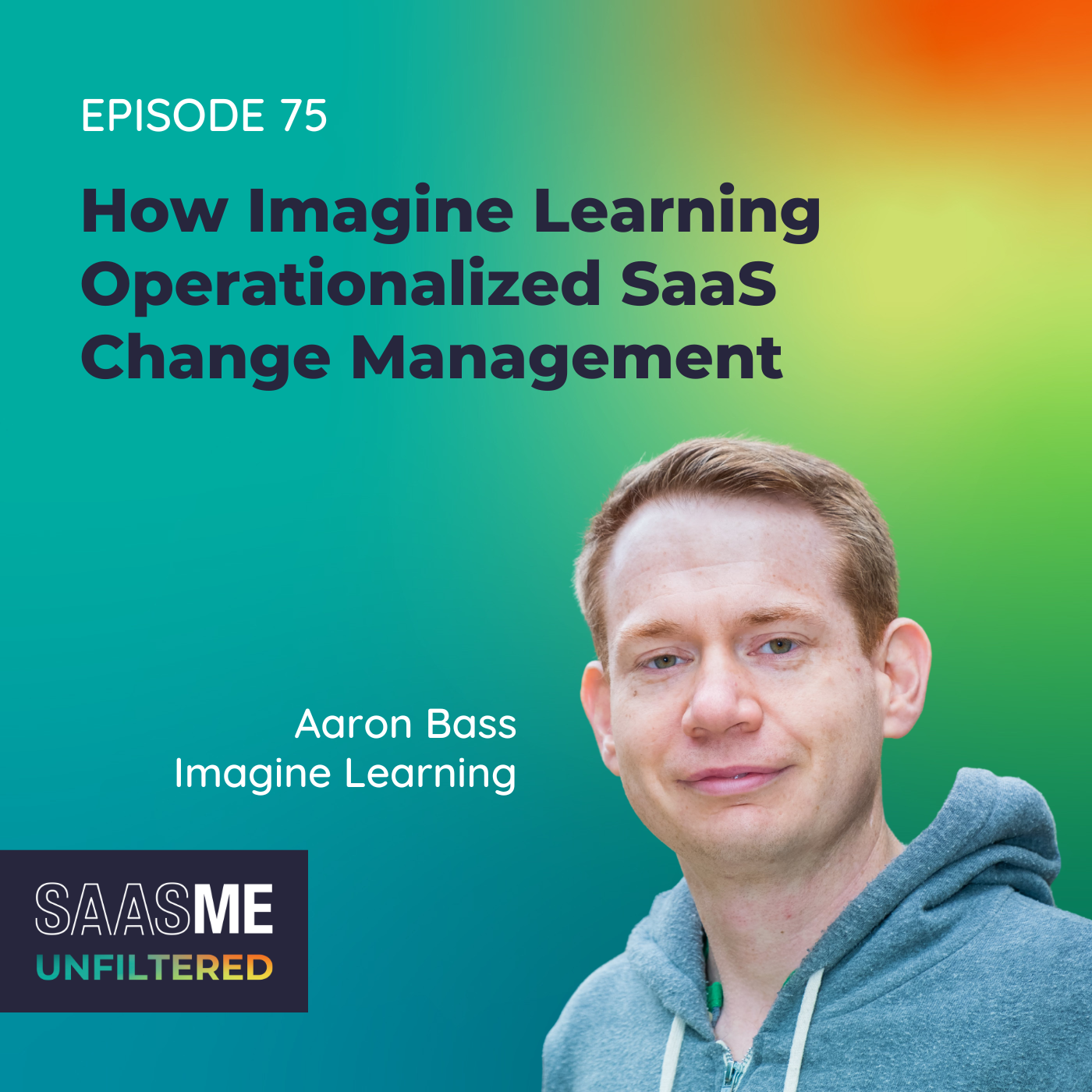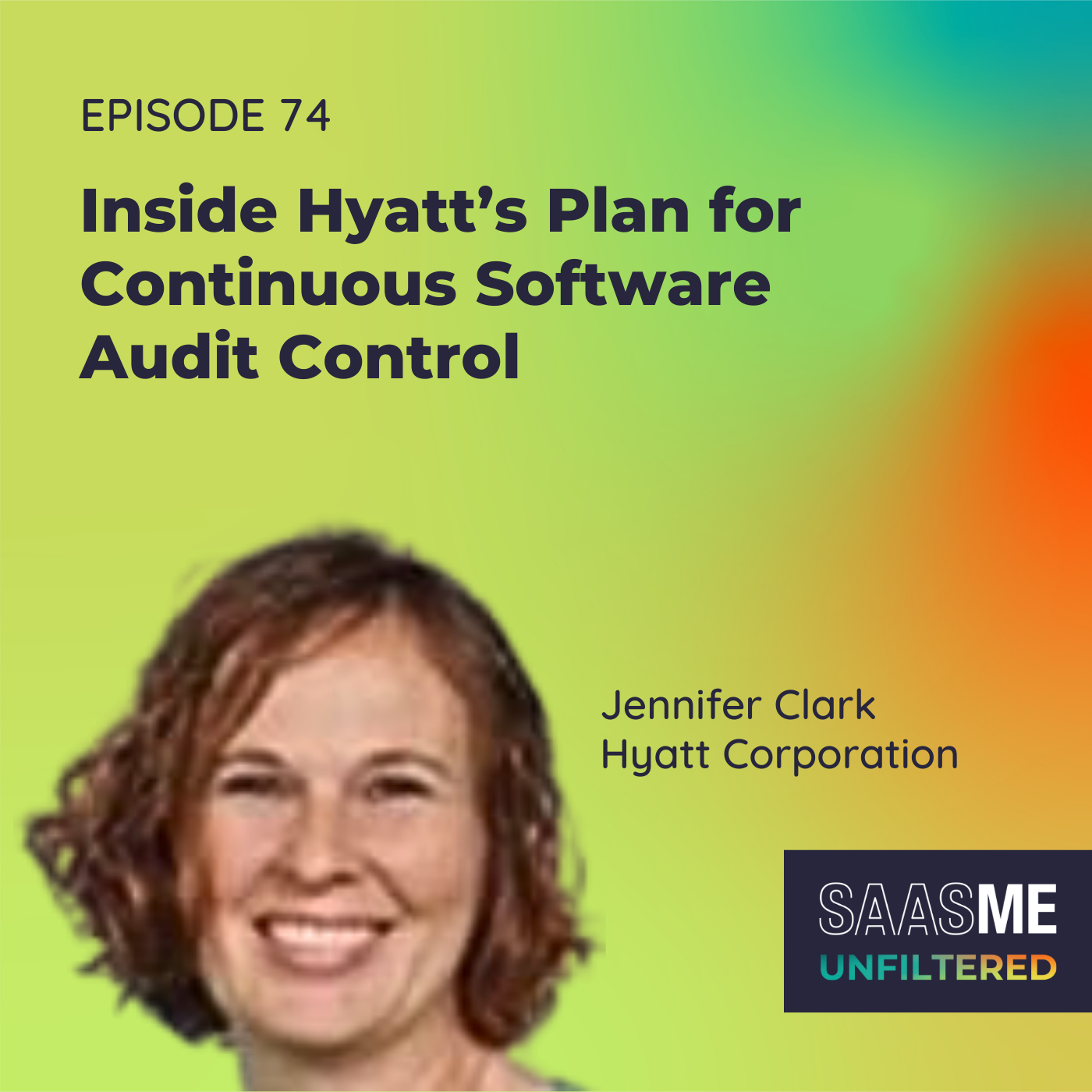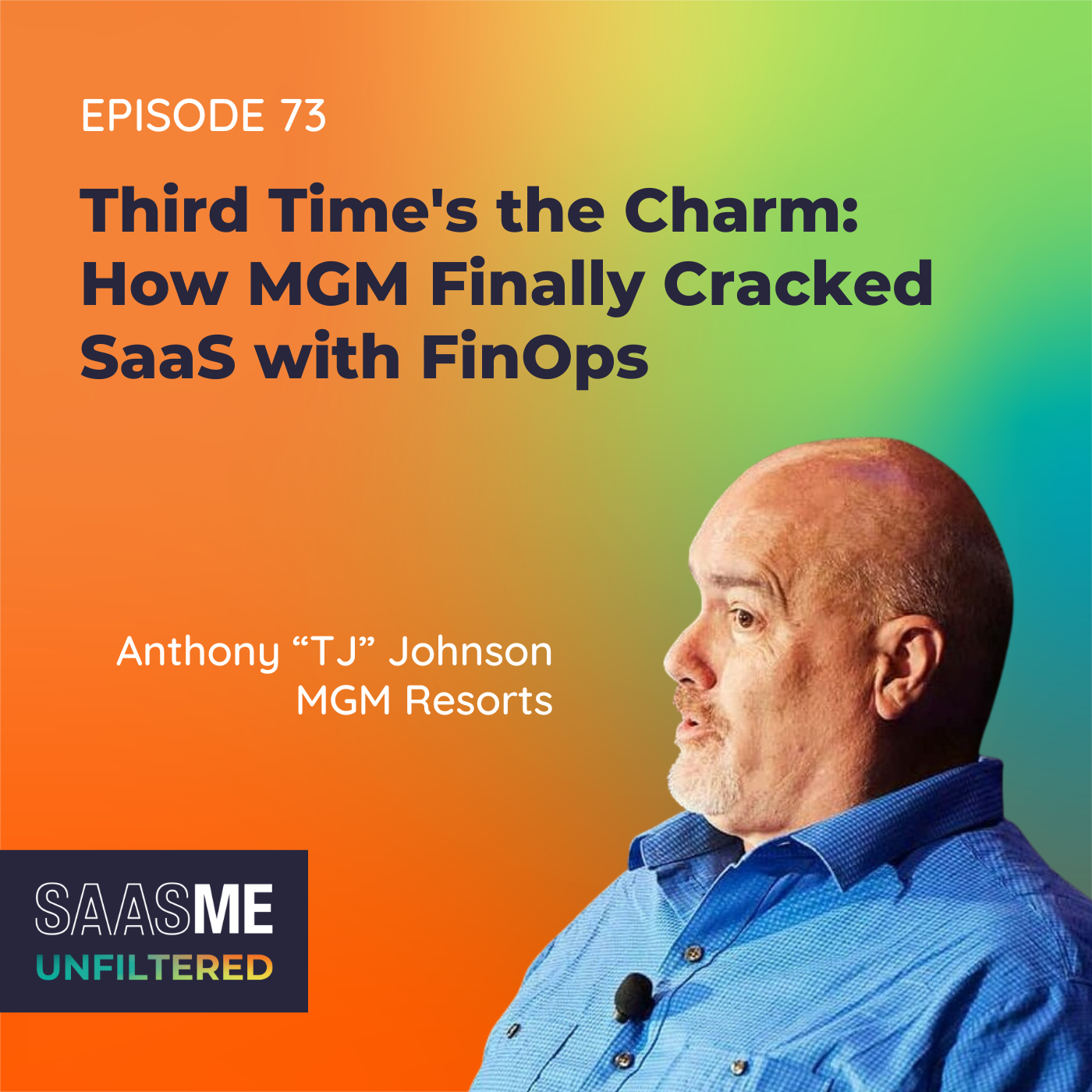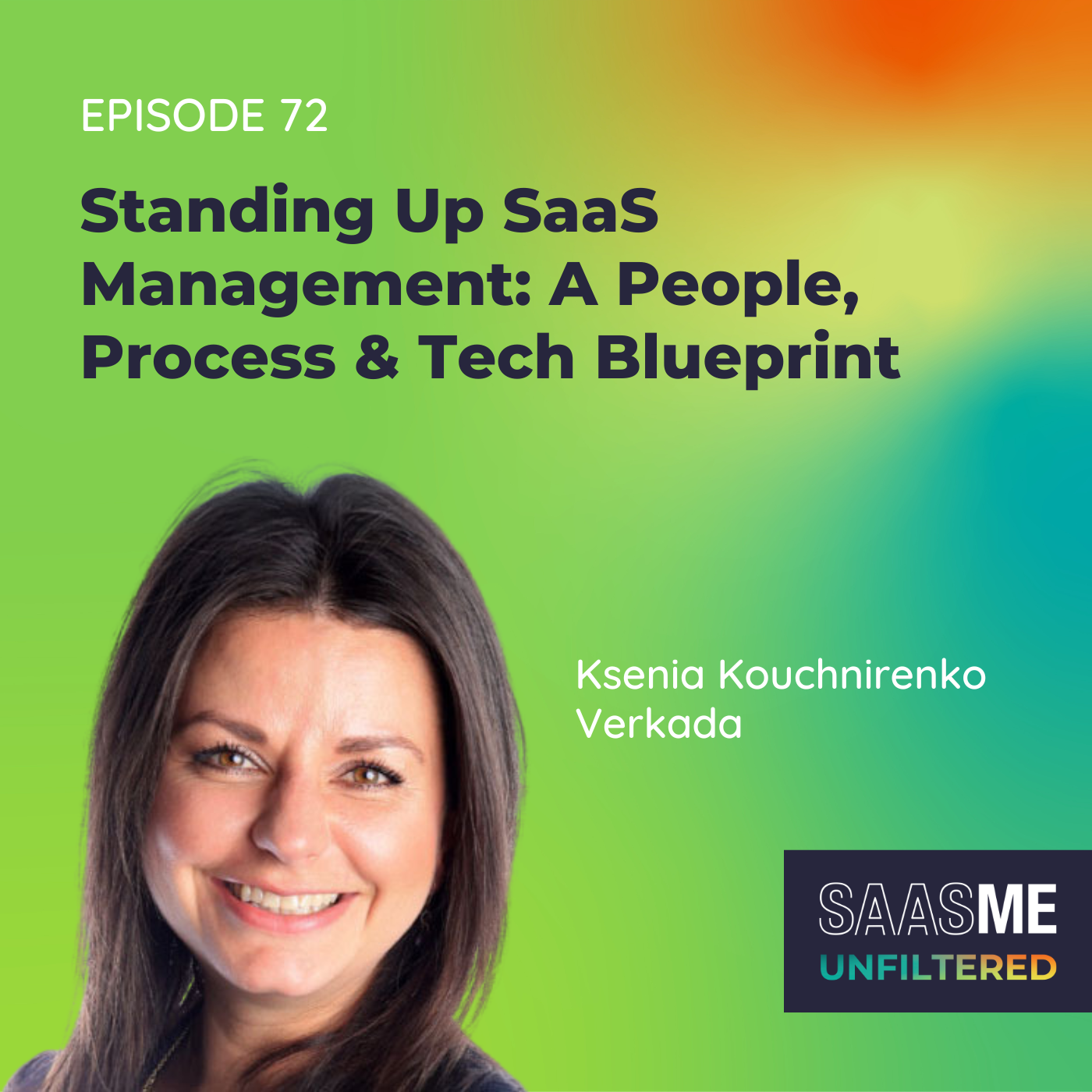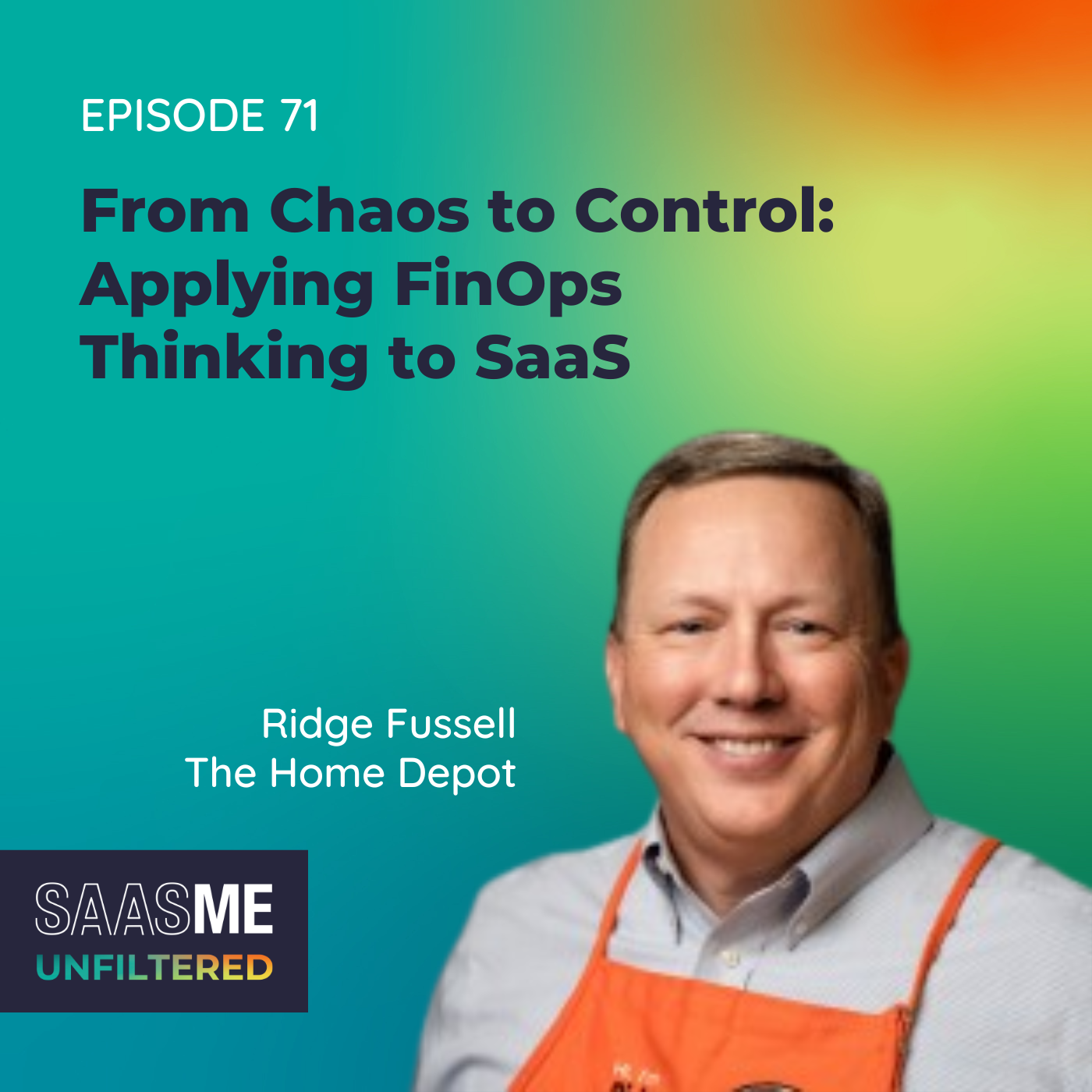Lance Younger: The Rise of Digital Procurement with ProcureTech
- 0.5
- 1
- 1.25
- 1.5
- 1.75
- 2
Lance Younger: CPOs are saying, " I need to be digital." Not just because of what they want in terms of the better outcome, but because they know that for the organization of the future and to attract and retain talent, they need to be digital as well.
Cory Wheeler: Hello, hello and welcome to SaaSMe Unfiltered, the SaaS Management podcast, the show with give it to you straight, real life advice From pros knee- deep in SaaS every single day, SaaS management superheroes just like you. Hello, we are back for another episode of SaaSMe Unfiltered. Very excited to have you join us today. I'm Cory Wheeler, Co- Founder and Chief Customer Officer at Zylo. My guest today is the CEO of ProcureTech, a digital platform focused on building the digital future of procurement, and co- builder of the ProcureTech 100 List with Kearney, which is a list of the top 100 pioneering digital procurement solutions that are supercharging the enterprise. I love that. Over his career, he has worked across many industries with large enterprises like Nissan, Ernst& Young, Goldman Sachs, Jaguar Land Rover, Dyson, and many others. And in whatever spare time he might have, he enjoys snowboarding and running, has two Spanish rescue dogs and two kids as well. Welcome to the show, Lance Younger, CEO and Founder of ProcureTech. Hi Lance, how are you doing?
Lance Younger: Hey Cory. Great to be here. Just a sound bite. I've just come back from snowboarding and I managed to twist my ankle pretty badly, so I'm not doing any running at the minute either.
Cory Wheeler: Oh no. Well, that's the price you pay for being active and having awesome hobbies to keep your time outside of work.
Lance Younger: Absolutely. Love it.
Cory Wheeler: Well, before we jump into the interview, I'd love to get your take on something. We're calling the Segment Hot Takes with Tom. Our colleague Tom McCorkle is going to share a Zylo point of view and you tell us what you think, whether you agree or disagree and why. Are you ready?
Lance Younger: Yeah, go for it.
Tom McCorkle: Hey everyone, welcome to Hot Takes with Tom, a give it to you straight point of view on SaaS management and optimization. Today's hot take is that companies must go back to the basics when it comes to spending money to fuel more responsible and sustainable business growth. Okay. I know you're thinking, " Tom, isn't that something we should have been doing all along?" Well, yeah, but to give everyone credit the last few years through a lot of leaders into a whirlwind of quick decision making, let's rewind the clock a second to 2020 when all of this started, companies were doing whatever it took to grow, to win and even survive, especially in the tech space. We were literally speeding around the terms without a brake pedal, transforming the digital workplaces overnight, buying SaaS like nobody's business and over hiring and overspending on staffing. Now I don't know any leader that wants to go into turn three at lightning speed and risk spinning out of control. That's why going into 2022, a lot of businesses started questioning this grow at all cost mentality and we saw a great rationalization begin to happen, first with software, then unfortunately with headcount. In 2023, smart business leaders will recognize the need to shift gears. They're going back to business fundamentals, applying the right amount of break to make their turn grow smart and lead their organizations to success and heck maybe even get a glass of cold milk to go with it.
Cory Wheeler: I'd love your take on a responsible business growth versus the growth at all cost mentality.
Lance Younger: Yeah, it's interesting. I think the other aspect that's in the word responsible as well is that link back to sustainability as well. I think unfortunately I think there's still a lot of people taking those corners at speed. You've got a lot of organizations that through necessity, whether it's because of supply chain crises or whether it's because of inflationary pressures or war, they're having to take those corners at speed and prioritize certain activities over others. However, to balance that of we are seeing a set of leading organizations that they've either got a new set of business traits or behaviors or they're already leaders. Organizations that have stayed true to good practices, responsible growth, deploying measured approaches, whether it be to what they spend and who they spend it with through to organizations that are learning those new behaviors. We've certainly found with the organizations and the corporates we're dealing with even over the last 12 to 18 months, they've become a lot smarter when it comes to how they go about buying and working with suppliers. They've become more aware of the marketplace for solutions and they've become more aware of the challenges it takes to kind of take them on board as well. Yes, responsible growth is increasing, but I would still say it's still tough in the current environment.
Cory Wheeler: Yeah, I would definitely agree with that. We've got lots of conversations with our customers, applying new techniques, really a new mentality around software procurement usage and the whole lifecycle management of all software assets. Backing up just a little bit, I had the good fortune of meeting you through involvement directly with ProcureTech. It's a really interesting organization and spending a career in procurement before Zylo is one that is not only interesting but hits close to home. If you could explain to the listeners a little bit about ProcureTech's vision and how you're enabling the future of digital procurement.
Lance Younger: Yeah, wonderful. I like that before Zylo, a little bit similar with me before ProcureTech. I mean, my background is all procurements like yours, whether it's working with some of the big blue chip corporates like Goldman Sachs and this Nissan through to organizations like Deloitte and BCG and running my own startup as well. But the vision behind ProcureTech comes from two big problem statements which exist in the market. The first is organizations are struggling to find the right match of digital procurement solution that they need, for a number of different reasons. Then the second problem statement is basically that once they've found the match, basically they have struggled scaling and that can be struggle scaling a startup, but it can also be trouble scaling a bigger organization because of adaptability, user experience of the platform as well. We work with organizations on that match and on the scale, and there's three main communities that we deal with. One is corporates working on their digital procurement strategies, the selection of digital procurement solutions, building out their digital garages, but always working at it sort of digital first, data first, agile approach, lean in the way we approach. And then we work with digital solutions on their go- to- market strategies on their basically research programs and then getting a bit further and deeper into some venture studio work with them as well. And we bring that all together in the community. You mentioned the ProcureTech 100, identifying the ProcureTech 100, pioneering digital solutions through to running ProcureTech founders circle events and basically trying to sort of democratize the whole space. Because if you come back to the start, the problem statement with the match is unfortunately what people have been buying in the past has been based upon massive marketing budgets of the big companies. You'd always pick the top 10 because their marketing budgets were the biggest, the analysts would only talk about them. Whereas what we want to be able to do is democratize data, democratize access to these different digital solutions. You build the right portfolio of digital solutions to meet your business needs as well.
Cory Wheeler: Yeah, that's very well put, and I mentioned it in the introduction a little bit, but you've got an extensive background in procurement. We share that. You've worked at major global enterprises. What was your specific experience within the digital procurement space and how did that lead you to founding ProcureTech and now how is that evolving as we stand in 2023?
Lance Younger: Yeah, yeah, it's a good analogy and I should have to be quite honest, realized this a little bit quicker because when I was at Deloitte, we spent a few years doing research, really good research on CPOs. What are your challenges, how are you going to solve them? And we'd ask the same question every year about how are you going to realize your full ambition? And we'd always come back and say, " Well, we've got 60% below in terms of headcounts and capacity." The same stat would come back over and over and again and kind of think to myself, " Well, hold on a minute, that's not going to change because procurement scope is increasing, the people are great, they can't make a step change in their performance without digitalization." And so that was kind of one of the main tipping points, this kind of look, without digitalization, procurement can't realize their potential, so let's get involved in something that's going to do more digitalization. Now I had a bit of a side step into BCG, did a lot of good organizational transformation, cost out, risk out, but light on the digital. That's why we came back to ProcureTech to basically address the match and the scale around digitalization as well. To your second point, the question, things have changed. You know what I mean? That problem statement still exists, but a big thing has changed over the last five years is that if you asked five years ago for a SaaS procurement solution to help you manage the lifecycle solution, yes, granted Zylo was there, but now there's a few others out there, sorry to mention it, but only one of the leaders out there. But that didn't exist. It didn't exist. It exists at scale now and you do the whole life cycle of what couldn't be done before and it's done digitally, it's closed loop, it's scientific. Those are a couple of things that I've noticed and the reasons why we're doing ProcureTech.
Cory Wheeler: It's fantastic. Certainly in the last five years, I think when we started to see innovation in the 2000s and the teens and coming into 2020, a lot of that innovation really happens on the front end, on the revenue side of most organizations and CRM and sales processes and everything being very, very tied to revenue components within a business. To see the innovation now in procurement and finance, FinTech and all across the previously back office types of functions, these functions are now able to operate at scale to meet the business where they are and to handle the rapid pace, but that rapid pace of innovation in most organizations is very, very fast. It's great to see procurement get some of that shine. Certainly one of the things that we do here at Zylo. On that point, procurement, digitization, you talked about the perfect match in scaling. Can you go into that a little bit further around how ProcureTech thinks about both of those components?
Lance Younger: Yeah, no, no, no, absolutely. I mean, and they are different perspectives as well. The perfect match, traditionally when people have been going out to find solutions, there's been a bias towards the larger organizations and/ or going towards something which was a very detailed RFP or requirements specification. And what we do is we look at it slightly differently. We look for capabilities in an organization that not only lend itself to a match, but also a scale. As an example, basically, yes, you can look at detailed feature requirements, but we tend to look at, okay, well what's the engineering structure look like in a software business? What's the depth of their engineering capability? What's the CTO like? Where did he come from? What does the founding team look like? How many patents have they submitted? The raw capabilities of an organization that basically not only meet their current requirements but also demonstrate the ability that they can scale, and then also every single organization is different. Every single organization has got a different kind of ecosystem of digital solutions. And in some instances you may want to augment an existing solution with another solution or with a data source to make it fully powerful. For other solutions that might be an end- to- end solution. Finding that match within an organization requires you to understand the organization and understand the capabilities that you're getting. Then when it comes to scaling in a second part of it is yes, you select based upon the fact that they can scale, but you also need to work with the corporate to make sure that they can scale the organization and some of it's some of your basic change management activities. But some of it's actually, and I find this not just in the digital space but it's across procurement more broadly, is that buyers are very, very good at basically selecting, negotiating and putting in place a solution. But when it comes to developing and growing a supplier, and that might be digital one, it might be a supplier facilities management or marketing or whatever, it's a bit different skillset you need to be able to grow that organization. That challenge which exists in procurement is accentuated when you look at can a procurement guy help a digital solution scale? It's a different skillset you're acquiring and those skill sets are in short demand. Yeah, that's what we work on. Perfect match and helping organizations scale digitally as well.
Cory Wheeler: Jumping on that, I think procurement has been involved over the last couple decades in defining requirements and buying software as a service and now that SaaS and cloud are coming to procurement and impacting procurement, how have you seen that shift as procurement starts to adopt to those innovative rapid transformational types of projects to be able to select from a wider variety of tools and applications and be able to move quickly to manage even something as meta as software management within a SaaS technology?
Lance Younger: Yeah. I mean, you've got two scenarios in reality, maybe probably more, but if you take two extremes, one example is basically when you've got an organization that's high growth, brand new, they're putting in a new team and they need to basically yes, recruit the team but also basically recruit the tools for that team as well. And arguably that's the easiest scenario. You're building a team and you basically select a SaaS solution that's going to help them buy, it might be software, might be marketing, might be professional services, and that's the way of working from day one. It's the way of working from day one and that's easy. The other extreme which is magnified of you working in a large organization where they've got a seven step methodology that's embodied by 20,000 sub- steps and 15,000 templates and I'm exaggerating for effect here, and it's run in a certain way to ensure at one end compliance, which protects the business and protects the individuals, but the other end makes sure that you get a good commercial outcome. And those situations tend to be a bit more difficult because not only are you introducing a new tool, but you're often introducing a new process, a digital first process where you don't need as many steps, you do more co- creation, you've got to trust the software to recommend something because that's what's happening a lot. You know what I mean? You know have to go, " Yes, I trust it" and that requires a new way of working, but also a new mindset from the procurement individuals that are doing that and that change management, in some instances people are just doing it straight away. In other instances it's just the time they need to take to do that. Whilst by the way, procurement has still got a huge day job to do, that's probably the biggest challenge is doing the day job.
Cory Wheeler: Yes, very much so, and adopting new technologies on behalf of the business is one component of that. But then maybe looking at the explosion of software inside most organizations, this is something that I'm very passionate about. I believe that any fundamentally distributed category inside any organization is the biggest opportunity for procurement to drive value, centralized strategy and really be able to help organizations innovate faster. The advent of software as a service and that becoming completely democratized, IT no longer owns everything, is the biggest opportunity for procurement practitioners that I've seen in my lifetime. Maybe talk a little bit about that. What do you see the opportunity for procurement to really take on more ownership accountability and get that seat at the table around the very important and expensive category of software inside most organizations?
Lance Younger: I'd agree and interestingly enough, I've just came off the call before now and it's relatively unusual, but CPO, a global insurance company and they look after software asset management. What you are seeing is that much like say facilities management logistics and other areas that is often basically managed by procurement. My own personal view is it doesn't matter. It doesn't matter where it sits, it's more about making sure that the enablement is done the right way, you get the speed, you get the agility of process as well as basically that ability democratize what's happening as well because the implications of not doing it are more significant. Ironically, you're going to end up with subpar decisions in terms of selection and ongoing management and probably expose yourself to more risk if you don't do it. And that risk can be very, very obvious with regards to whether it's cybersecurity or otherwise, all the way through to talent leaving the organization because you're not digital. Fundamentally we hear it as much that CPOs are saying, " I need to be digital," not just because of what they want in terms of the better outcome, but because they know that for the organization of the future and to attract and retain talent, they need to be digital as well.
Cory Wheeler: Yeah, 100%. I like the way you phrased that. We talk to a lot of folks on the podcast, a lot of practitioners, a lot of folks that are tangential to the space as well, and I think you've got an interesting perspective on this, but most organizations have these, " Oh shit" moments where the chaos of tooling throughout the organization becomes untenable or an internal audit looking at maybe it's pre IPO activities or maybe you're a large enterprise that is auditing your own internal governance and controls and when they get to software and specifically SaaS, that is typically when they have that, " Oh shit" moment that everything is kind of out of control and they need to bring order back to that chaos. From your seat, there's a lot of mistakes made in SaaS, but you've got a unique perspective here. What's the most common mistake you see when corporates are looking to innovate and implement and run with new SaaS technologies?
Lance Younger: A couple of things and a little bit of it comes back to what I mentioned at the start here about the match and scale where, I can't remember who said it, but there's this line that exists where basically what you need is out there and things just aren't equally distributed, you know what I mean? But it's the same with procurements. Solutions exist out there, but people are just not finding the right match. They're not taking the time to find the right match and then not take the time to scale. Big mistakes that we see that are linked around that is that basically organizations will spend a lot of time selecting solutions when they don't need to, and every day that they go through selecting solutions, they're losing thousands of pounds or basically exposing themselves to more risk. And as I talk now, I kind of think about that a little bit more and part of it's because of the lack of individual, I'm going to say accountability, but people feeling safe enough to make a decision on themselves to work in an agile way to make a decision, and/ or they can't make the decision to delegate it or to escalate it. We find we go through selection processes, which we think can take seven weeks and it takes seven months and there's lost value, there's increased risk exposure, lost talent and time in that mix. Whatever we do, we try and we introduce the accelerator, the first of its kind in the industry to basically just say, " Look, you can go at speed with the same level of rigor with a better outcome, so let's do it."
Cory Wheeler: Yeah, that's been a fun program to be a part of, the accelerator, really meeting those corporates with innovative technologies and co- creating, which you mentioned earlier, co- creating an outcome that not only fits for the emerging technology but also solves a very real business need in the corporate space. It's a great program.
Lance Younger: And organizations are looking to, basically the corporates are looking to see how can they create cohorts of digital solutions or just general solutions that can continue to build that innovation. Because that's one of the things that is a criticism of a lot of the bigger organizations is they fail to continue to innovate. I mean, the digital solutions, they slow down for one reason or another and that becomes one of the main reasons why you've seen the explosion of not just SaaS solutions in procurement, but across the board.
Cory Wheeler: Well, you've also got a perspective, Zylo, we're here in the United States, you spend a lot of time over in Europe with corporates, large corporates over there. Talking about where we're at right now, the current economic climate, cost reduction being a focus, responsible growth and profitability. Kind of a two- part question. How does the economy right now playing into different procurement strategies and maybe any differences that you're seeing between the US and Europe and did Europe really just get a headstart on reacting to this environment or is it still playing out there?
Lance Younger: Yeah, it's an interesting one because I think what we've all felt through the pandemic and various supply chain challenges and now economical challenges is the necessity to focus on what's core to you and your particular environment and beyond the cost and risk then it's, okay, well is it sustainability because that's part of your agenda or USP or is it a particular category of spend? We do see a difference between the US and Europe and Asia in terms of the evolution of digital solutions as well. In many of the conversations I've had with other sort of digital procurement kind of experts, there's kind of an observation that the European market is in certain areas, Germany, the UK is slightly more mature and basically more embracing of some of the digital solutions. But then I think once you go to particular cities or regions in the US you maybe get the same, but it's more spread in Americas. There are subtle difference. There's a few different things at play both on the demand and the supply side for the digital procurement space.
Cory Wheeler: I love the global view that you and ProcureTech have. In talking about ProcureTech's kind of perspective on this area, you guys released a 2023 ProcureTech Predictions and Purpose Report, really looking at what those predictions are as we head into 2023. Maybe talk about some of those high level predictions that you have within the procurement space as it relates to innovation and growth around internal capabilities as well as external capabilities within each organization.
Lance Younger: It was a bit of fun to be quite honest. Yes, with six different panelists and all the data, we identified the ProcureTech 100, but then we kind of thought, " Well, who better to ask than that group to say, 'Well, what's trending fastest and hardest?'" And so we asked them to give their predictions and then we ran a webinar and the attendees, over a hundred people on the webinar voted, so you got that nice blend of Zylo and others giving predictions, and then all the people on the webinar are saying, " Well, yeah, we think that's a good prediction" and came out with the top 10. But last year the predictions were spot on. When we ran them last year, 80% of them were right and the 20% that weren't far off. That combination gives a kind of pretty good sort of glass ball view on what's coming forwards. What we see, I mean, we see a few trends happening, that we tend to look at them at a little bit more macro level, whether as this move more towards a best of all digital procurements ecosystem. Rather than having a single suite, going to a best breed and a backbone solution, we see that basically move towards a view of interface to database. A lot of people just talk about apps, they'll talk about Zylo, they'll talk about Cevo, they'll talk about and, and, and. But fundamentally you've got to look at the interface, so what the user uses all the way through to the app layer, to the data layer, to the architecture that sits behind that and supports it as well and ties that all together. We'll also see a continued supply and demand a balance coming through. As I mentioned earlier on, if you were looking for a particular solution five, 10 years ago, you couldn't find it. Now you can probably find it and if you can't find it, you can build it pretty quickly with the more innovative digital solutions as well. And so there's a few other things that are kind of evolving in that space, but the good thing is people like you fine selves are kind of rising to the challenge as it were.
Cory Wheeler: Well, I think with an 80% hit rate last year, folks are going to want to check that out. We'll definitely provide it in the links here, but that is the 2023 ProcureTech Predictions and Purpose. Kind of jumping off of that, maybe one of those last questions around procurement and getting a seat at the table. One of our previous guests on an episode mentioned that procurement needs to be creating the table rather than just getting a seat at the table, and that's a consistent theme when we talked to procurement organizations, that fight for relevance. Part of my founding story launching Zylo was this was the biggest opportunity to really increase the importance and the visibility of what procurement is doing. What advice would you give to procurement professionals today to help elevate their leadership within their own organizations?
Lance Younger: It's a question that divides, I think this one, in a funny kind of way. Simple question, but also divides because I often think if you are trying to fight for a table at the organization, then it's the wrong organization unless that's what you've been invited in to do by the CEO, because if you're trying to fight for it and you are passionate about it, then you could probably go into another organization where there's a table already there or they want the table kind of reshaped or a little bit built or something similar. They know how important procurement is. Now granted, procurement is going through transformation and you can always say it's the challenge, but you can spend two, three years trying to do something and the organization just doesn't make the change. A couple of other perspectives on this, and it's an interesting one, is that I've seen peers of mine who've followed more of a CPO path through their career where they've only been in the organization for two months and then have gone, " Right, I'm out." And from the outside in you can kind of go, " Wow, the organization didn't like him. He's had to leave." Whereas in reality with the one or two people I know, they've left because what they've been sold wasn't what they've got when they got in through the door. And so there's that side of things. The other side, which I think is a sign of a very strong organization, but also strong CPO is if CPO has managed to go through several transformation rounds. The typical transformation is two, three years. If you're lucky, you catch tailwinds and it's 18 months, but in reality it's two, three years to make the transformation. The real sort of rockstar CPOs, we like to say go through a couple of generational changes. The first one is, I'm not to say it's easy, but it's a rite of passage for a good CPO, but a great CPO does multiple within the same organization, takes them through a number of different changes and is able to shift that transformation so it's also aligned with where the organization's going as well. Maybe a slightly different perspective on maybe it's not a seat they need to build, it's maybe a rocket ship or some other analogy not from planet to planet, you know?
Cory Wheeler: That perspective is great. Inspiring the next generation of CPOs to drive a positive impact that moves procurement forward via digital technology, as well as just the change of historical procurement responsibilities and the nature of procurement in most organizations. Trying to continue to elevate that to do the right thing for organizations. Right now, there's never been a better opportunity for that. This has been a really interesting conversation, one that your perspective I think provides a lot of supplementary detail around the practitioner view and the industry analyst view and some of the folks that we've talked to on the podcast. This has been really, really great. We're going to go ahead and close out the episode in our traditional manner with our rapid fire segment. I'm going to walk through a few different quick points and I'd love your fast reaction to each of those. Could be a word, could be a quick sentence, but just your initial reaction to each one of these. You ready to have some fun?
Lance Younger: Yeah, go for it.
Cory Wheeler: Okay. The first one is enterprise innovation and the future of procurement.
Lance Younger: Yeah, I'm all in. I'm all in on enterprise innovation. Every shape and form.
Cory Wheeler: All in is the perfect way to encapsulate that. That's the one that I thought this is a really big concept. Let's see if Lance can just boil that down into one thought and all in is perfection. I'd love to know your favorite procurement related solution. Maybe it's historical, maybe it's something now. What's that favorite digital technology that procurement uses or builds around?
Lance Younger: Bit of a cop out here, ChatGPT. Chat procurement technology. If people aren't using that in every single day, then they're missing out and if it's not being built into solutions in using large language modules.
Cory Wheeler: Now, kind of on the fun side, what is your favorite cocktail?
Lance Younger: I love either a good glass of rum and coke, rum first, then coke. And I tend to go a little bit sort of everything from the president to others through to any lime based cocktail.
Cory Wheeler: Perfect. Any lime based cocktail, just make sure it's got that. That makes sense. Okay, last question. Your favorite snowboarding location, where have you been that's your favorite spot?
Lance Younger: I'm going to give you two here. One is where I've just been, into Morzine, and favorite because basically it's a spot we go to quite regularly and it's more about the people we go with and the mountain and the fresh air that's really good about it. Then I've been lucky enough to kind of go across to Utah where the powder was just sublime.
Cory Wheeler: Yes, Utah is gorgeous. The skiing is spectacular and it's a great community out there. Lance, this has been so much fun. Your perspectives on digital procurement, being the CEO and founder of ProcureTech, really helping map large corporates to innovative technologies. Building those use cases, thinking outside of a typical engagement structure to creating something that really helps enterprises move forward and innovative companies build their roadmap and hear from these enterprises is second to none. It's a phenomenal organization that you've built. Your thought leadership in the space is really pinpoint what people need to hear and you're lifting everyone up in the space. It's been fun watching you do it, and we can't thank you enough for jumping on these SaaSMe Unfiltered podcasts today. Thank you so much for joining us.
Lance Younger: No, it's been great, Cory, and yeah, it's great being part of the community with you and a lot of other people as well. Thanks for having me.
Cory Wheeler: Did you enjoy the episode? Pass it along to your friends, subscribe to get notifications for the latest episode, share your favorite takeaways, and join the conversation on social media using# SaaSMeUnfiltered.
DESCRIPTION
Digital transformation spread in waves over the last 20+ years for many areas of business – from marketing and sales to finance and HR. For procurement, that time is now. ProcureTech CEO and Founder Lance Younger believes digitalization is paramount for Procurement to realize their full potential. In this episode, Lance shares his philosophy on digital procurement – why it matters and how to be strategic about it.
Today's Host

Ben Pippenger
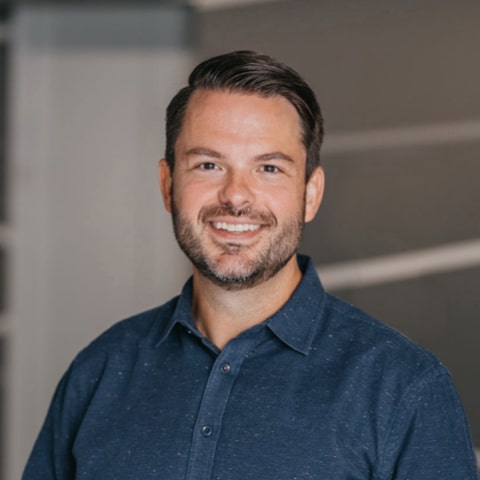
Cory Wheeler

Meredith Albertson
Today's Guests


